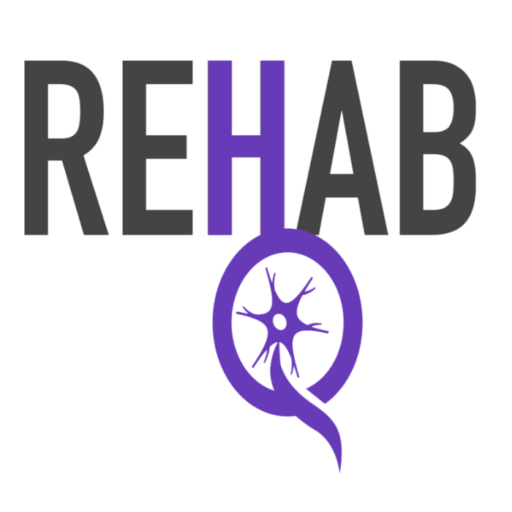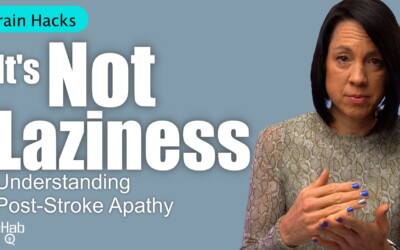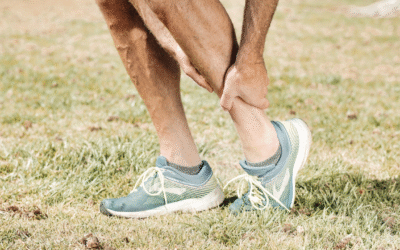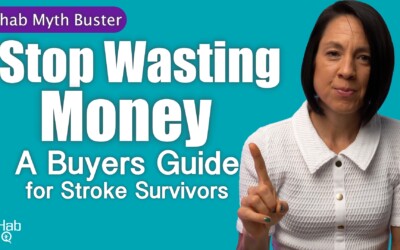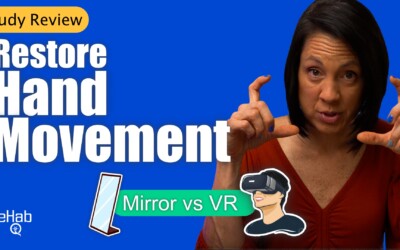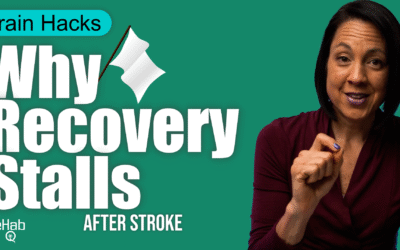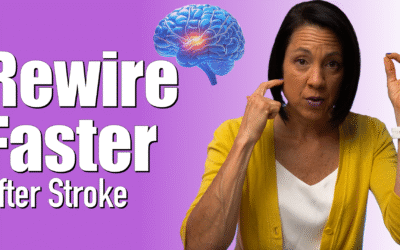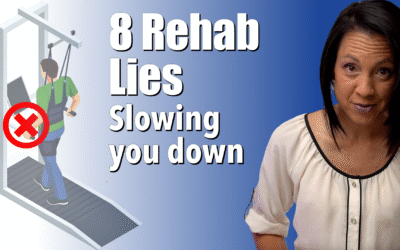Are You Missing the Nutrients That Help the Brain Heal Faster?
If you’re recovering from a stroke, you already know the process can feel slow, tiring, and confusing. You work hard on your exercises… but sometimes it still feels like your brain isn’t changing fast enough.
Here’s something most people never get told:
Your daily exercises aren’t the only thing that help your brain heal.
What you feed your brain may matter just as much as the exercises you do.
There are two nutrients that your brain leans on heavily after a stroke:
- Protein
- Creatine
How Protein Fuels Neurotransmitters
Protein (like chicken, eggs, beef, yogurt, or fish) is more than a food group, it’s the raw material your brain uses to communicate.
Here’s what makes it essential:
- It helps regulate appetite and blood sugar.
- It has a high thermic effect, meaning your body works harder to break it down.
- But most importantly for stroke recovery? Protein provides the amino acids that your brain uses to communicate, heal, and grow.
Those amino acids aren’t just floating around passively. They become neurotransmitters and growth factors, tiny chemical messengers and builders that your neurons rely to function.
Why Amino Acids Matter for Rewiring
After a stroke, your brain is working hard to build new pathways, almost like creating detours around damaged roads.
Amino acids give your brain the materials it needs to form new connections, strengthen the skills you practice in rehab, and support thinking, memory, and movement.
A few key examples:
- Dopamine (helps you stay motivated and focused)
- Serotonin (helps stabilize mood)
- Glutamate & GABA (help neurons turn signals “on” and “off” so learning and movement work properly)
When you’re rewiring your brain, learning to walk differently, speak differently, or coordinate new patterns, these neurotransmitters are the sparks and signals that help the new circuits form.
So yes, your repetitions matter.
But without protein?
You don’t have enough workers to build on the work you’re doing.
How Creatine Acts as the “Backup Battery” for Your Brain
Creatine often gets labeled as something only athletes use, but your brain depends on it too.
Your brain runs on energy called ATP. Every thought, every movement, every new connection uses ATP.
Here’s where creatine comes in:
- It helps your brain recharge ATP when energy runs low
- It supports learning and memory
- It gives your brain extra fuel during difficult tasks
Think of creatine as a portable charger you plug in when your brain is working hard, especially during rehab.
The important part:
Creatine only naturally comes from animal foods.
So if you don’t eat animal protein, you’re likely getting zero creatine from your diet. It’s a gap worth talking to your doctor about, especially during neurologic healing.
The REAL Connection Between Nutrition and Neuroplasticity
Protein gives your brain the building blocks, the scaffolding that supports new connections.
Creatine gives your brain the energy, the ability to power those connections into action.
Healing after a stroke isn’t about doing more all the time. It’s about doing the right things consistently and giving your brain what it needs to make the most of your efforts.
Neuroplasticity, the rewiring of the brain isn’t just about movement practice.
It’s about your brain having the energy and materials to make change happen.
Nutrition doesn’t replace rehab…
but it supports your rehab so your brain can make better progress.
Actionable Steps to Consider
1. Take an honest look at your protein intake.
Are you getting enough high-quality protein each day?
(Animal protein offers the full amino acid profile, but talk with your doctor or dietitian about what’s right for you.)
Try:
- Eggs
- Greek yogurt
- Cottage cheese
- Lean meats
- Fish
2. Ask your medical team about creatine.
A low-dose creatine monohydrate supplement is usually where people start.
Ask whether it’s safe for your kidneys, your medications, and your specific type of stroke.
3. Pair your nutrient support with intentional practice.
Once your brain has the raw materials and the energy, your therapy has a much better chance of sticking.
Choose one small movement or task that matters to you:
standing from a chair, stepping onto a curb, reaching into a cabinet
and practice it with intention.
4. Notice how you feel.
When your brain is well-fed, it often shows up in focus, attention, and energy.
Reflection Questions for Your Journey
What part of your recovery feels most “energy-draining” right now?
Could improved nutrition help support that?
Is there one small shift you could make this week, more protein with breakfast, or a conversation with your doctor, that could give your brain a little more fuel?
Does your current diet align with the healing your brain is trying to do?
If you’re ready for more structured guidance, feel free to explore our membership plans and take the next step toward the stronger, more confident version of yourself that’s waiting on the other side of this work. You can also schedule a discovery call to talk through your goals and challenges with someone who gets it.
Your brain is capable of more than you think.
Start fueling it like you believe that.
Articles you may be interested in
Stroke Recovery and Apathy: What It Is and How to Overcome It
What’s Really Going On When Motivation Disappears After Stroke Recovering from a stroke is a journey that requires strength, patience, and persistence. But for many stroke survivors, the hardest part isn’t weakness, fatigue, or memory loss. It’s something less visible...
Spasticity or Weakness? Understanding Your Stroke Symptoms
How Can You Tell If It’s Spasticity or Weakness After Stroke? https://youtu.be/3QR9D4rBNhc If you’ve had a stroke, you’ve probably heard a few of these words tossed around: spasticity, weakness, stiffness, foot drop. They might all sound similar, but they each tell a...
Master Ankle Mobility: Exercises for Better Walking
Ankle Mobility Exercises to Boost Balance and Walking Ankle stiffness is one of the most common issues people face after a stroke or any neurologic injury. It can make walking harder, cause your toes to catch, or even affect your balance. But here’s the thing,...
Improve Focus and Attention After Stroke
Stroke Recovery: How to Regain Focus and Attention Faster https://youtu.be/ul0wUgXravo When most people think about recovery after a neurologic injury like a stroke, brain injury, or MS, they often focus on the physical side. Strength. Repetitions. Muscle activation....
Should You Spend Money on Stroke Rehab Devices?
Are Trendy Rehab Treatments and Devices Worth It? Here's My Honest Take https://youtu.be/T69LavHLdIQ Should you be spending your hard-earned money on all those rehab devices popping up in your social media feed? And if so, which one is actually worth it? The truth?...
Restore Hand Movement After Stroke with Mirror Therapy
Mirror Therapy & VR: Stroke Recovery for the Hand https://youtu.be/OeThZMwJt40 If you’ve lost movement in your arm after a stroke, you’ve probably wondered: “Is my arm just weak, or is something deeper going on in my brain?” That’s not because your muscles forgot...
Stroke Recovery Plateau: What to Do
Why Stroke Recovery Stalls and How to Push Through Recovery may feel stuck, but progress is still possible. Here’s how to keep improving after a plateau. https://youtu.be/w6xZZpx7tDY Recovering from a stroke or neurologic injury can feel overwhelming. Walking,...
Why Your Stroke Exercises Aren’t Helping and How to Fix It
Stroke Recovery Tips: When Exercises Don’t Seem to Work https://youtu.be/9r06T9gtsYc Is it possible to be making progress after a stroke or neurologic injury and still feel like your movement is getting stiffer, heavier or just plain harder?Absolutely. And let me tell...
Boost Stroke Recovery: 3 Brain Habits That Actually Work
Want to Rewire Your Brain Faster After Stroke? Try These 3 Habits https://youtu.be/iFcjDtHrrwM If you’ve been on this neuro-recovery journey, you know it can feel like progress is slow. You do your exercises, you follow instructions, but sometimes your brain seems…...
Stroke Recovery Myths Debunked: The Truth About Healing
8 Neuro Rehab Myths That Are Holding You Back (And What to Do Instead) Debunking Common Myths About Neurologic Recovery https://youtu.be/chTfi1d5kn4 If you’ve ever been told that your recovery after a neurologic injury has an expiration date, or if your physical...
